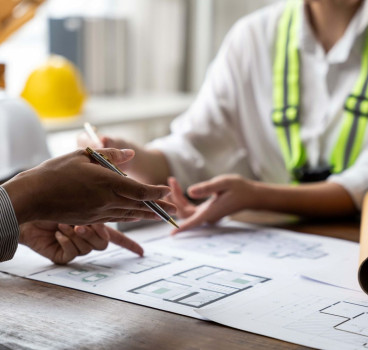Handling Building Disputes Better
Being in a building dispute can be a pain. But if it is not immediately resolved, it can cause worse problems for you. This could be in the form of delays, unfinished work, additional costs, and it can take much of your time. How will deal with it can determine the success of the construction project? An Australian construction lawyer gives his views.
Building disputes can be anything. It could be about poor workmanship, payment issues, contract breaches, or any concern that involves a constructed building.
It can also be a test on how you could manage your relationships with the others involved in the building project. With a harmonious relationship, you can easily work together to finish the building properly.
But, handling building disputes sounds easy but it could be hard when you are in the actual situation. This applies especially when the person you are dealing with could be difficult to work with.
So, here as some tips to help you handle building disputes better:
Talk and Negotiate with empathy.
Do not let your emotions rule you when talking to your builder. They are people too, and they can make mistakes. You must learn to listen to their story with understanding what are the events that led to the dispute. With a clear head, you can already know what your next action to resolve this mess.
But while being understanding, you should still know how to distinguish the difference between excuses from facts. It will lead you to know the truth and the way to resolve the problem.
Take note and document every detail.
Having a copy of everything related to the building project is a helpful practice for you when things go wrong. You can easily track where the dispute happened, and even keep your work organized.
You can even have it as solid legal proof. Your contract, payment claim, invoices, pictures and other documents can help you handle the dispute as objective as possible. You can use it to plead your case properly to the parties involved and you can easily pinpoint who is at fault. And in some cases, they can hold the key to a resolution for the issue.
Know your rights.
Different construction laws protect you from different building disputes. There are laws for building defects, laws for late payments and laws that can protect your rights whichever role you are taking part in the building project.
So, you have to do your best to enforce it. The law is on your side so if the other parties in the project are not doing their job well, you can confront them about it. It is in your hands on how you should remind them of these laws, but remember that the law is also solid proof of their incompetence.
Talk to a specialist construction lawyer.
If you feel that you do not have the confidence to confront the other party yourself, you can ask the help of a construction lawyer to mediate in between. They can help you understand your rights in the building disputes and what you can do about them.
They can guide you through each step of any legal process you would have to undergo due to the dispute. They can also give you expert legal advice, so you are sure that your building dispute gets resolved as cost and time- efficient as possible.
So that, you get to enforce your legal rights and handle your building dispute with ease.
Visit: https://www.contractsspecialist.com.au/building-dispute-lawyer-sydney
Additional Blogs

Drones in Construction: Are UAVs the Future of Site Inspections?
Technology integration is necessary for construction companies to survive in this evolving industry. Unmanned aerial vehicles or UAVs, such as drones, are poised to be the next big thing in site...
Read moreThe unseen carbon cost of late design changes
There is a particular moment in almost every project when someone says, “It’s only a small change.” A wall shifts half a metre. A grid tightens. A plant room grows. A façade is reconfigured to...
Read more

When compliance becomes the enemy of good design
There is a particular comfort in compliance. It comes in the form of certificates, checklists and sign-offs. It reassures clients, satisfies insurers and protects professionals from liability. In an...
Read more